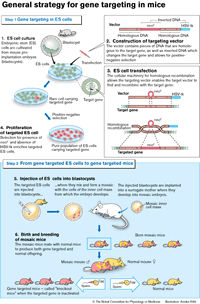Potential for Huge Rewards but High Risks Identified in report on Genetics in Drug Research and Development
The application of genetics to biopharmaceutical research and development (R&D) holds enormous potential, but is a high-stakes game. An original research report issued today by The Boston Consulting Group (BCG) details the potential: savings, in the best case, of more than $500 million and up to two years in developing each new drug. In effect, that would more than halve the current cost of bringing a drug to market, and would transform pharmaceutical R&D and perhaps even the delivery of health care in general. But the report indicates that the application of genetics lags that of genomics technologies, and that there are many hurdles over which the approaches could stumble.
"The potential rewards from applying genetics tools to R&D are enormous. It's possible that companies could, under certain plausible assumptions, cut the costs of drug development by more than half," says Peter Tollman, a BCG vice president and director in the Boston office and leader of the firm's biopharmaceutical R&D practice. "This promise should be tempered by the many associated uncertainties however-significant scientific and technical problems that have yet to be solved, along with questions about market and regulatory acceptance."
Mr. Tollman continues, "If companies ignore genetics, they could falter in the face of a truly transforming technology. On the other hand, to embrace genetics involves placing high-risk bets. The future of many firms may well depend on how successfully they navigate between these currents."
The report issued today is the second of a three-part series examining the application of genomics and genetics to pharmaceutical R&D. The first installment, published last month and prompting much press coverage and industry wide interest, discussed the economic impact of genomics technologies-an impact described as significant and clearly achievable. Today's publication, A Revolution in R&D Part II: The Impact of Genetics, switches the focus to genetics applications, and concludes that the positive impact here is potentially far greater still, though considerably less certain.
The report concentrates on two genetics approaches that are applicable to pharmaceutical R&D:
Disease genetics: the search for disease-susceptibility genes as potential drug targets, and
Pharmacogenetics: predicting patients' drug responses by analyzing the genetic variations in their DNA.
The two genetic approaches are applied at opposite ends of the pharmaceutical R&D continuum. Disease genetics is invoked early in the drug discovery process to help identify and validate key target genes for therapeutic intervention. By contrast, pharmacogenetics is used mainly to streamline the later stages of drug development by selecting for clinical trials those patients likely to respond favorably to the candidate drug.
"Disease genetics holds the potential to change fundamentally the way drugs are discovered, whereas pharmacogenetics could radically change the way they are developed," notes Philippe Guy, senior vice president and leader of BCG's worldwide health care practice.









































